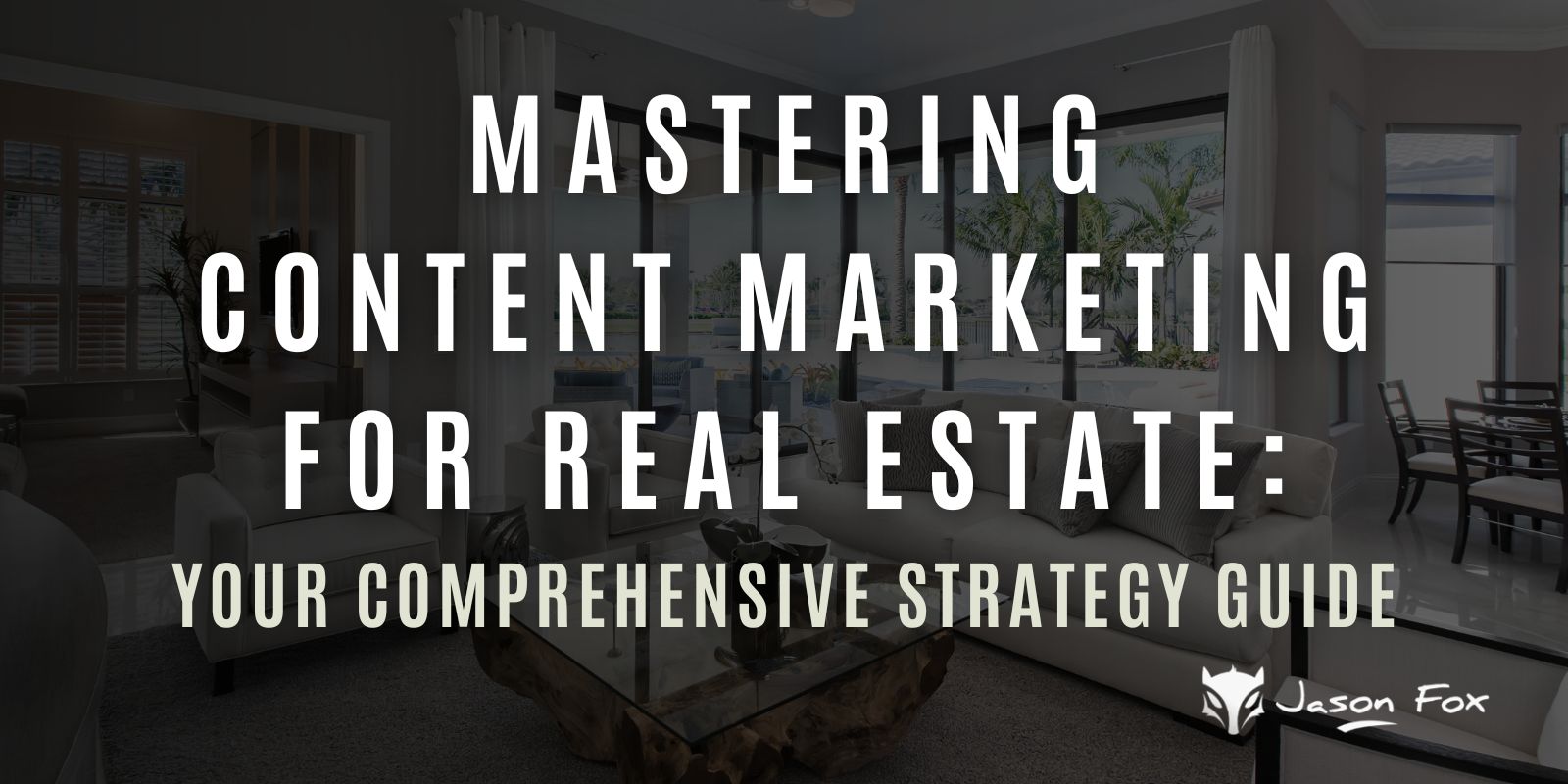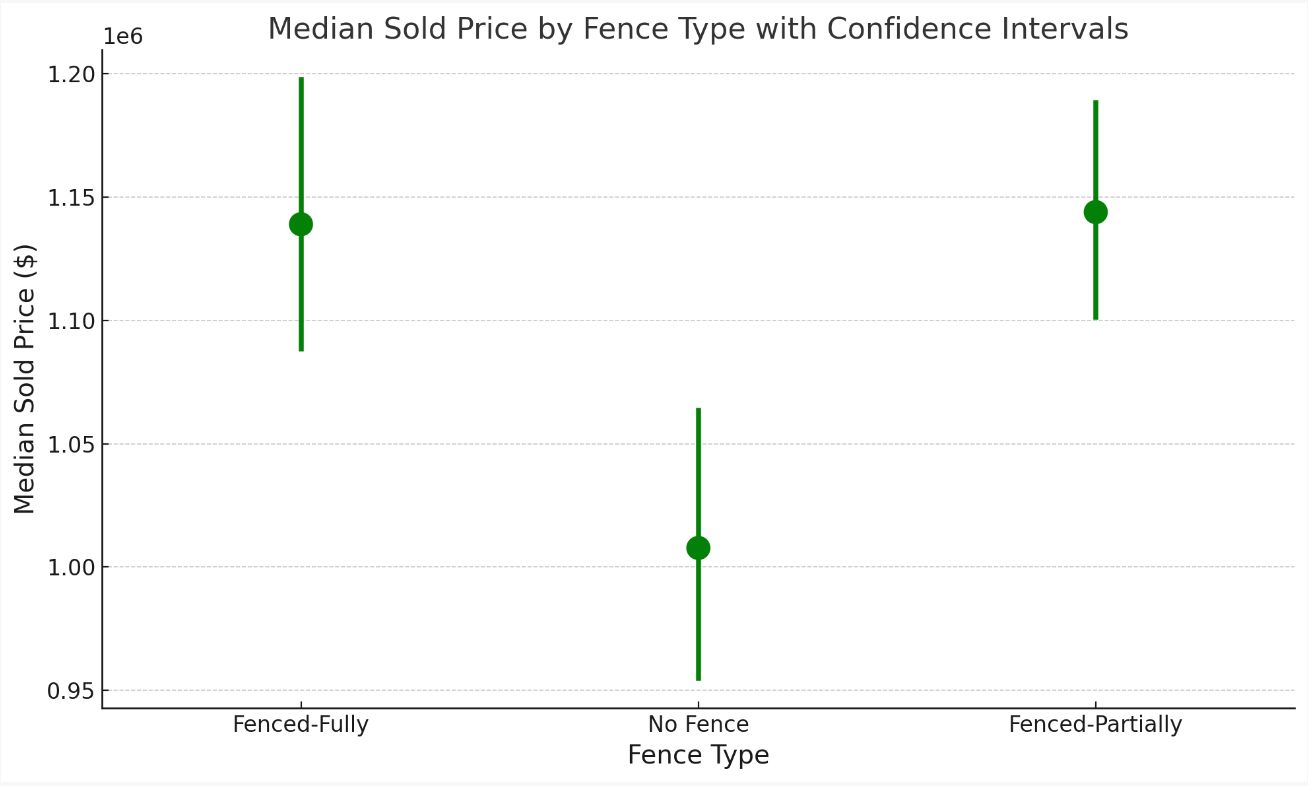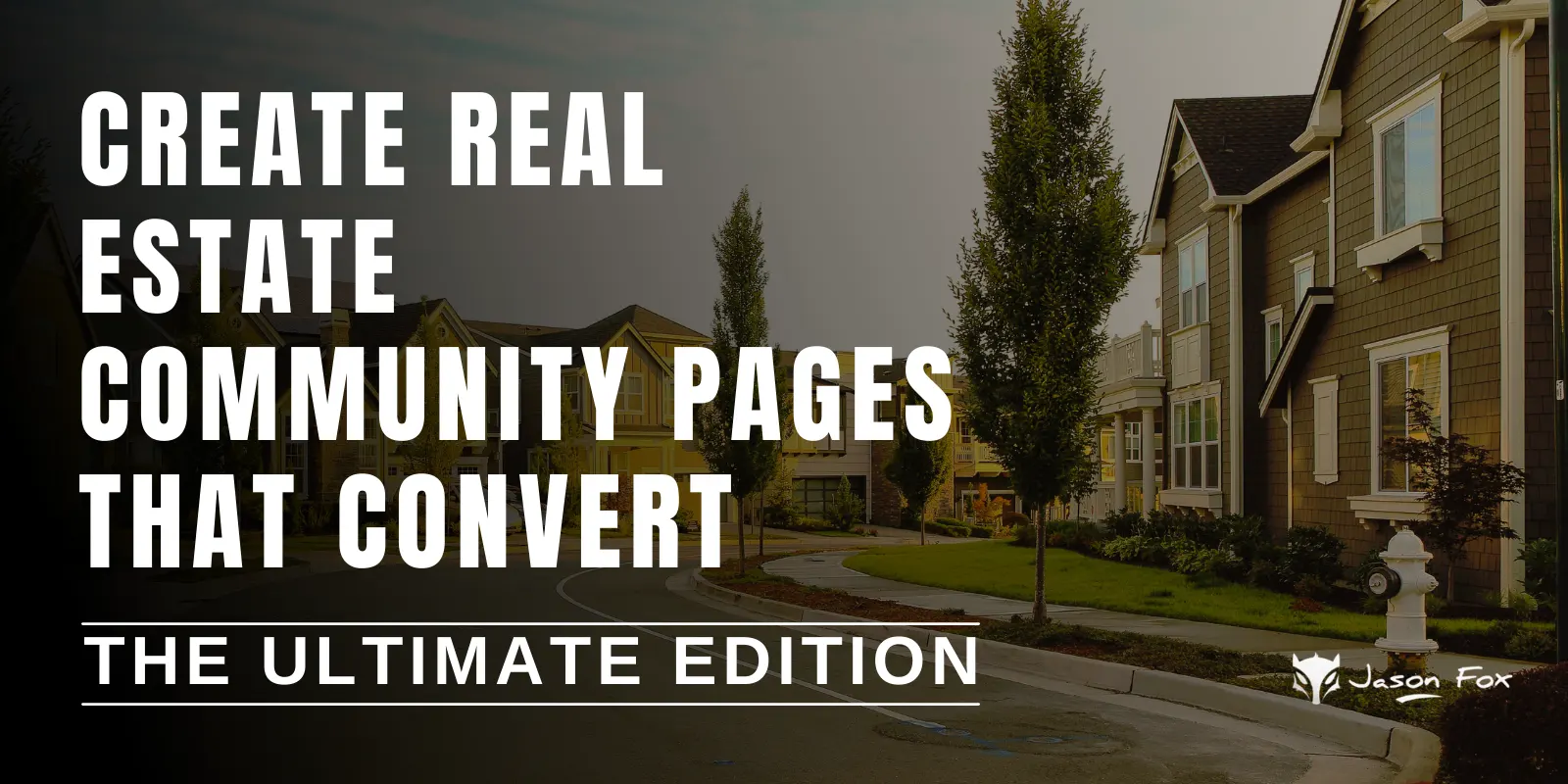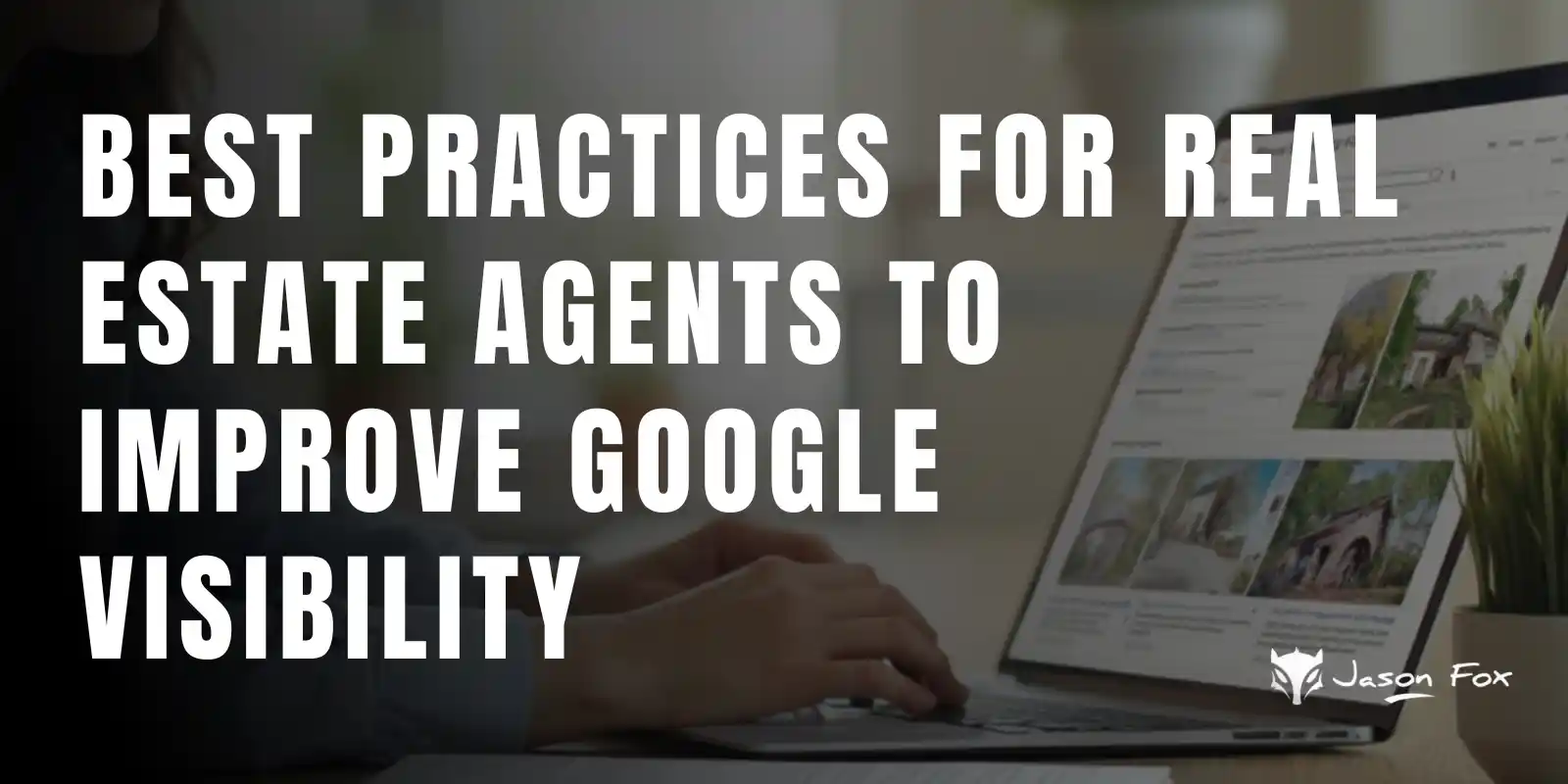Mastering Content Marketing for Real Estate: Your Comprehensive Strategy Guide
How Can Content Marketing Help Me Attract and Keep Clients in Real Estate? Effective content marketing can attract and retain clients by building trust and enhancing visibility while keeping them informed and engaged. The basic formula is simple: create valuable content, share it widely, and engage with your audience.
This no-nonsense guide serves up clear, actionable strategies for real estate pros to boost their online presence and drive meaningful engagement. Dive into blogs, virtual tours, and authentic storytelling to see how they can amplify your business. Ready to cut through the noise? Let’s navigate the practical pathways of content marketing for real estate together.
“Marketing is telling the world you’re a rock star. Content Marketing is showing the world you are one.” – Robert Rose
Key Takeaways
- Effective Real Estate Marketing: It’s more than just showcasing properties—it’s about storytelling, engaging audiences with immersive content, and building trust through personalized experiences.
- Visual Content: Professional photography and virtual tours are central to real success, boosting engagement and portraying properties in a dynamic, compelling way.
- Measurable Success: Optimize your strategy with data, track KPIs, and use tools like Google Analytics to understand and improve audience engagement and conversion rates.

Crafting a Winning Real Estate Content Marketing Strategy
Real Estate is competitive and standing out requires more than just a sign on the lawn; it demands a strategic approach to content marketing that resonates with your audience. Implementing an effective real estate marketing strategy involves creating an informative blog post, virtual tours, and crafting a narrative that not only informs but also engages potential buyers and sellers, guiding them through the complex journey of real estate transactions.
Incorporate Reviews: Don’t overlook the power of customer reviews. Positive feedback from clients not only builds trust but also enhances your SEO. Highlight reviews on your website, Google Business profile, and social media channels to showcase your reliability and success in helping clients.
By understanding the nuances of the real estate market and aligning your content with the needs and interests of your target audience, you’re not just selling properties—you’re building relationships and trust that translate into real estate business growth and differentiation in the real estate industry.
Identifying Your Target Market
Who are you talking to? It might seem simple, but in real estate, your target market can be as diverse as the properties you’re selling. Dive into the data to understand the demographics of your website visitors. By analyzing age, gender, and location, you can tailor your marketing strategies to resonate with various buyer personas—from the first-time homebuyer to the savvy investor.
Each group has distinct needs and preferences, and your content must speak directly to them to be effective.
Setting Clear Objectives for Your Content
What’s your content marketing goal? Every piece of content you create should help you reach your business goals. Whether it’s generating leads, increasing site traffic, or establishing thought leadership, setting clear, measurable objectives is crucial for guiding your content creation and gauging success.
Tools like Google Analytics helps monitor your website’s performance, ensuring that your content not only reaches but also resonates with your intended audience.
Aligning Content with Sales Funnel Stages
Does your content address the specific concerns of your clients at each stage of their journey? From initial curiosity of the ‘awareness stage’ to the final decision-making process, your content should serve as a guide, providing value and showcasing your expertise. Integrating a well-planned content creation process can help ensure that your content consistently meets these objectives.
By creating educational content tailored to the awareness, consideration, and decision stages, you help potential clients navigate the complexities of the real estate market, ultimately leading them to trust your guidance when it’s time to make their move.

Engaging Your Audience with Compelling Real Estate Stories
Tell a story that captures not just the features of a home but what it’s like to live there. This is the power of storytelling in real estate—it goes beyond facts and figures to evoke emotions and create connections. By sharing real stories of past clients, their challenges, and triumphs, real estate pros can paint a picture that potential buyers and sellers can relate to.
It’s about crafting a compelling narrative that resonates on a personal level and demonstrates not just a property’s value but its potential to become a cherished home.
“Marketing is no longer about the stuff you make but about the stories you tell.” – Seth Godin
The Art of Storytelling in Property Listings
Property listings are where storytelling can really shine. Instead of giving a dry list of features try creating a story that brings the property to life. Describe the warmth of sunlight streaming through the bay window or the laughter that echoes in the spacious living room during family gatherings. It might feel a little cheesy at first but adding sensory details and emotional appeal will not only help sell a place, it will sell a vision for the future, a dream of what life in the new home could be like.
This storytelling approach can make your listings unforgettable and irresistible to potential buyers.
Sharing Client Success Stories
Nothing builds trust and credibility like a success story. When you share the journeys of past clients—how they overcame obstacles and achieved their real estate dreams with your help—you do more than just narrate; you inspire. These stories serve as testimonials to your expertise and dedication, encouraging potential clients to envision their own success under your guidance.
Whether through social media posts or featured articles, highlight the human element in every transaction because, at the heart of every property sold, is a story worth telling.
Incorporating Local Knowledge and Events
Are you a local market expert? Showcasing your knowledge of the community can be as crucial as highlighting property features. Share anecdotes about the neighborhood, its history, and what makes it unique. Creating content that reflects local events and cultural significance provides a deeper connection for potential buyers. They’re not just looking for a house; they’re looking for a place to belong.
Your local expertise can be the compass that guides them to their ideal home and community.
Leveraging Local Business Referrals
Once you’ve established yourself as the trusted local market expert, you are in the perfect position to refer local businesses. Leveraging local business referrals can significantly enhance your real estate content marketing strategy.
By recommending personally vetted local businesses—like home contractors, restaurants, and salons—you add extra value for your clients and strengthen community ties. Highlight these businesses in your blog posts and social media updates to show you care about clients’ entire experience, not just the transaction.
This approach builds trust and boosts your reputation as a well-connected local expert. Collaborating with these businesses for joint promotions can also expand your reach, creating engaging content that integrates your real estate practice into the community fabric, making your services more appealing and trustworthy.
Incorporating Local Expertise into Content Marketing
One effective way to add value through your content marketing is by highlighting the benefits of home improvements that local businesses can provide. For example, quality fencing can greatly enhance a property’s curb appeal and overall value. A well-maintained fence not only offers privacy and security but also boosts the aesthetic appeal of a home, making it more attractive to potential buyers.
A 2023 study of real estate data findings by Sky Fence Company found that installing a well-designed fence can positively impact selling prices and reduce the time a property spends on the market (DOM). Sharing such insights can educate your audience on home improvements’ tangible benefits, reinforcing your expertise as a local market expert.
![Google analytics]](https://www.jasonfox.me/wp-content/uploads/2024/06/Google-analytics.jpg)
Optimizing Real Estate Content for Search Engines
In the digital world, visibility is everything. Optimizing real estate content for search engines ensures that when potential clients begin their online search, it’s your website they find. Incorporating the right keywords, following SEO best practices, and building a network of backlinks enhance your website’s ranking with the hope of landing you on that coveted first page of search results. After all, 75% of users never scroll past the first page.” (source: HubSpot)
It’s not just about reaching a wider audience; it’s about reaching the right audience—those who are ready to engage with your real estate brand and take the next step in their journey with the best real estate brands.
Keyword Research for Real Estate Topics
A successful SEO strategy starts with robust keyword research. It’s the guide that directs your content towards topics that resonate with your target audience. By selecting keywords based on search volume, competition, and relevance, you can ensure your content aligns with what potential clients are searching for.
Long-tail keywords, in particular, can be goldmines of opportunity, offering less competition and a higher likelihood of conversion. Remember, it’s not just about attracting traffic—it’s about attracting the right traffic that’s likely to convert into leads and sales.
On-Page SEO Best Practices
On-page SEO is your content’s handshake with search engines, signaling its relevance and quality. Keywords should be woven seamlessly into your on-page elements—titles, meta descriptions, headers, and URLs—to make it clear what each page is about. But don’t stop there; ensure that your content is informative, engaging, and provides real value to your readers.
In the eyes of search engines, quality content is king, and it’s the best way to ensure that your pages rank well and attract the attention they deserve.
Pro tip: Google Search Console is a great free resources that can give you some insights into which search queries you are ranking for so you can adjust your keyword strategy. In Google Search Console look for Performance Search Results/ Queries. From here you will see a list of search queries with the number of impressions and clicks you are getting for each. Identify the queries that have the highest number of clicks to impressions to see where you are performing the best. You can build on that or work to strengthen areas where there are a lot of impressions but few clicks.
Building Backlinks through High-Quality Content
Backlinks are connections that link your content to the wider web, signaling to search engines that your site is a hub of informative and valuable resources. Creating high-quality content, such as in-depth guides or engaging videos, encourages other websites to link to your pages, boosting your domain’s authority and search rankings. It’s a cycle: the more authoritative your site becomes, the higher it ranks, and the more visibility it gains, attracting even more backlinks.
A Few Words About Paid Backlinks
What about buying backlinks? Its always best to receive backlinks organically. However, this can be a slow process so it might be tempting to throw money at the problem. There are plenty of services offering paid backlinks but they aren’t always the most reputable. The good ones typically have backlink partnerships with a number of websites who they write regular content for. The less reputable ones will either pay for your links to be inserted or write low quality articles stuffed with a bunch of unrelated links. If they are writing a post about home decorating and they are including your link along with a dozen other links to online casinos, cryptocurrency schemes or worse, how do you think this will make you look?
In digital marketing, backlinks are endorsements, and every endorsement counts. Just know where they come from.
Boosting Local SEO with Citations
Now that we’ve covered the importance of backlinks, let’s talk about local citations. Local citations are mentions of your business’s name, address, and phone number (NAP) found online. These are key for improving your local SEO and making sure your business shows up in local search results.
Why Local Citations Matter for Content Marketing
Local citations help search engines confirm your business’s location and relevance. When your NAP info is consistent across different platforms, it builds trust with search engines, boosting your local SEO and driving more organic traffic to your site.
Getting your business listed on reputable local directories and websites increases your visibility in local searches. This means more people will find your high-quality content, leading to more engagement and potential clients. It’s a straightforward yet powerful way to enhance your overall content marketing strategy.
Need help with your citations? There are several great tools out there including my current favorite Bright Local. We have no affiliation with them, they’re just easy, affordable, and they get the job done.

Visual Content: A Key Element in Real Estate Marketing
A picture is worth a thousand words, and in real estate marketing, high-quality visual content can be worth a thousand leads. Images, virtual tours, and videos captivate potential clients, giving them a glimpse into the life that awaits in a new property. Visual content enhances engagement and plays a significant role in SEO, with search engines favoring media-rich pages.
By investing in professional photography and immersive video content, you’re not just showcasing properties; you’re telling a visual story that can inspire action and drive results.
“Photography is the story I fail to put into words.” – Destin Sparks
Professional Photography and Virtual Tours
First impressions matter, and nothing makes a more stunning first impression than professional photography and virtual tours. These visual elements invite potential buyers into a property, allowing them to explore and connect with spaces even before setting foot inside. Professional photos highlight a property’s best features, while virtual tours offer a 360-degree perspective that can be experienced from anywhere in the world.
According to Redfin homes with professional real estate photos sell 32% faster and for more money. Listings between $200,000 and $1 million sold for $3,400 to $11,200 more when photographed professionally with a DSLR camera.
Investing in these tools not only saves time and resources but also elevates your brand, setting a high standard for the client experience.
Pro Tip for Using Images: When adding images to your website your site speed can be severely impacted if they arent optimized correctly. If you are using WordPress you can avoid this by using a an image optiization plugin like Smush, by WPMU Dev. It’s a great free plugin that will automatically optimize the images for you. You can also do it manually with free online tools like the fabulous Bulk Resize Photos. Simply drag and drop your image, select a size and image quality, and just like that you get a perfectly resized image. For image resize they say you can go as low as 75% for lossless quality but I like to stay closer to 80% for peace of mind. Also, avoid PNG and stick with either Jpeg or WebP.
Pro Tip for Virtual Tools: The most recognizable tool for virtual property tools is Matterport. While it is a great tools which claims to increase calls by 95% you will need to decide if it is right for your content marketing strategy. I’ve personally spoken with several high end real estate agents who avoid these tools for a few reasons. One, they can inspire looky-loos who aren’t serious about buying. Two, serious buyers are more apt to overlook a great option if they don’t experience the space. And three, real estate agents have more control over the sale when they are with them in person.
Creating Shareable Infographics
In the information age, infographics have emerged as a powerful tool for real estate agents. By distilling complex data into clear, visually appealing formats, infographics make it easier for clients to digest and understand important information. They’re not just informative; they’re highly shareable, increasing the likelihood that your content will be seen by a wider audience.
Whether it’s market trends, home improvement tips, or step-by-step buying guides, infographics can transform dry statistics into compelling content that sparks conversations and drives engagement.
Pro Tip: There are several tools to create your infographics including Venngage, Piktochart, Visme, and of course Canva. I’ve personally used Canva Pro for years and have always loved the tool. It’s simple to use, creates great looking work, and they keep adding new features, like AI.
Leveraging Video Content for Greater Impact
In the digital marketplace, video content reigns supreme. It offers a dynamic way to convey a wealth of information in a short amount of time, from property previews to market insights. Engaging video content can tell the story of a home, showcase the vibrancy of a neighborhood, and share valuable tips—all while building an emotional connection with viewers. Whats more, a recent study from the Nation Association of Realtors indicate listings with video receive 403% more inquiries than those without.
With platforms like TikTok and YouTube, real estate professionals have unprecedented opportunities to reach potential clients through short, engaging videos that can be shared across the web, further improving their website’s search engine rankings.

Interactive Content to Boost Engagement
To captivate and retain the attention of potential clients, interactive content is a game-changer. From quizzes and calculators to virtual reality experiences, interactive elements not only engage users but also provide valuable insights and lead generation opportunities. They offer a way for clients to actively participate in their property search, creating a personalized and memorable experience.
By incorporating interactive content into your marketing strategy, you’re inviting potential buyers and sellers to become active participants in their real estate journey, fostering a deeper connection with your brand.
Polls and Surveys for Audience Insights
What better way to understand your audience than to ask them directly? Polls and surveys are invaluable tools for gathering insights into the preferences and behaviors of potential clients. By engaging with your audience through interactive features on social media platforms like Instagram, you can collect real-time data that informs your marketing strategies and content creation.
These insights can guide your efforts, ensuring that you’re addressing the topics and concerns that matter most to your target market, ultimately leading to content that resonates and converts.
Quizzes and Calculators as Lead Magnets
Interactive tools like quizzes and calculators are more than just engaging features—they’re powerful lead magnets. Offering personalized assessments, such as helping users determine the best type of property for their needs or calculating mortgage affordability, provides value while capturing valuable contact information. These tools assist potential clients in their decision-making process and establish your brand as a helpful resource, nurturing leads through the sales funnel and positioning you as the go-to expert in the real estate market.
Virtual Reality Experiences
The future of property viewing is here, and it’s virtual. Augmented and virtual reality technologies allow clients to:
- Tour properties from anywhere in the world, overcoming geographical limitations
- Provide a sense of ownership before purchase
- Visualize properties still under construction
- Help clients see the potential in spaces that need a little TLC
These immersive experiences are revolutionizing the way properties are viewed and are making the buying process more convenient and efficient.
You may be asking yourself, do VR tours influence home buyers? Yes, a study from Harvard Business School noted that virtual tours were included in 22% of the 75,000 home sales they analyzed, emphasizing the integration of VR in residential real estate transactions.
Real estate agents at the height of COVID-19 became pretty adept at virtual tours, as did buyer. And, while the post-pandemic world has retruned us to in person showing the convenience of virtual tours has remained.
By integrating AR/VR into your marketing strategy, you offer a cutting-edge, interactive experience that can significantly enhance engagement and accelerate the transaction process.
Advanced Content Types for Real Estate Experts
To truly stand out as a real estate authority, you need to offer more than the basics. Advanced content types like white papers, comprehensive guides, and analytical reports position you as a knowledge leader in the industry. They provide deep dives into topics that matter to your clients, offering insights, guidance, and data-driven analysis that can influence decision-making.
Leveraging your expertise to create these in-depth resources helps you:
- Educate your audience
- Build trust and credibility
- Establish long-term client relationships
- Generate repeat business
White Papers on Real Estate Investing
White papers are the scholarly articles of the real estate world, offering well-researched, in-depth analysis on investing principles and market trends. They’re perfect for conveying your expertise on complex topics like the impact of economic policies on real estate or the nuances of property management. Providing this level of detail helps potential investors make informed decisions, positioning you as a trusted advisor.
When these investors are ready to act, they’ll turn to the expert who equipped them with the knowledge they needed to proceed with confidence.
Comprehensive Guides for Buyers and Sellers
In the maze of buying or selling real estate, comprehensive guides serve as the map. They walk buyers and sellers through each step of the real estate process, including:
- Understanding market trends
- Navigating legal and financial considerations
- Conducting the initial search
- Making offers and negotiating
- Completing inspections and appraisals
- Securing financing
- Closing the deal
Creating guides that cover everything from the initial search to closing empowers your clients with the knowledge they need to make smart, confident decisions.
Such guides not only inform but also show your commitment to supporting clients every step of the way, reinforcing your role as a dedicated real estate agent and professional within a real estate company.
Analytical Reports on Local Real Estate Market Dynamics
Knowledge is power, and analytical reports on local real estate market dynamics provide the power to navigate market shifts and trends confidently. These reports offer valuable insights into factors like housing prices, inventory levels, and economic growth, enabling buyers, sellers, and investors to understand the forces shaping the market. As a real estate expert, providing this data-driven analysis helps you demonstrate an unparalleled understanding of the local landscape, aiding clients in making strategic decisions that align with their goals and the current market climate.

Amplifying Your Content Across Digital Platforms
Creating exceptional real estate content is only the first step; the next is ensuring it’s seen by the widest possible audience. Amplifying your content across digital platforms is about leveraging the full spectrum of online channels to reach potential clients wherever they may be. From social media to email marketing, the right mix of channels can expand your reach, engage your audience, and drive traffic back to your website.
By optimizing each platform for content distribution, you not only increase your visibility but also create multiple touchpoints with your audience, enhancing the chances of conversion.
Social Media Channels for Wider Reach
Social media is the town square of the digital age, a place where news spreads fast and connections are made. For real estate professionals, platforms like Facebook, Instagram, and Twitter offer unparalleled opportunities to showcase properties, share success stories, and engage with a broad audience. By tailoring content to each platform’s strengths—stunning visuals on Instagram, targeted ads on Facebook, timely updates on Twitter—you can ensure that your message resonates with your audience.
Consistent branding, a clear voice, and strategic use of hashtags can amplify your reach, making your content a fixture in your followers’ feeds.
Email Marketing to Nurture Leads
Email marketing remains an essential tool in the real estate professional’s arsenal, offering direct and personalized communication with potential clients. Regular newsletters can keep your audience informed about new listings, market trends, and company news, nurturing leads through valuable content.
By segmenting your email list and tailoring messages to different audience groups, you can ensure that each communication feels relevant and personal, increasing the likelihood of engagement. With the high ROI of email marketing, it’s a channel that can’t be overlooked in your digital strategy.
Collaborations with Influencers and Local Businesses
Building partnerships with influencers and local businesses can take your content marketing to the next level. Collaborative efforts, whether through sponsorships, co-branded campaigns, or shared events, can introduce your brand to new audiences and reinforce your community presence. By aligning with individuals and businesses that share your values and audience, you create a synergy that can amplify your message and boost your credibility.
These partnerships can be a powerful way to extend your reach beyond your own channels and tap into established networks of trust and influence.
Measuring the Success of Your Real Estate Content Marketing Efforts
But how do you know if your content marketing is truly successful? It’s all in the metrics. By setting KPIs and tracking performance, real estate professionals can gain insights into what’s working and what’s not. Tools like Google Analytics offer a window into how users interact with your content, which can inform future strategies and adjustments.
From website traffic to conversion rates, keeping a close eye on these metrics ensures that your content marketing efforts are not just creative but also strategic and results-driven.
Key Performance Indicators (KPIs) to Watch
In the world of real estate content marketing, certain KPIs stand out as critical indicators of success. Metrics like cost per lead and client acquisition cost offer concrete data on the efficiency of your marketing spend. Appointment-to-listing conversion rates, meanwhile, provide a snapshot of how effectively your content turns prospects into active clients.
By monitoring these KPIs, you can evaluate the performance of your content marketing strategy and make informed decisions to optimize your efforts for better ROI.
Analyzing Traffic and Engagement Metrics
Beyond KPIs, analyzing traffic and engagement metrics can reveal a wealth of information about your audience’s behavior. Which pages are they spending the most time on? What content leads to conversions? How do users navigate through your site? Google Analytics can provide answers to these questions, offering insights that can fine-tune your content strategy.
By examining behavior flow and exit pages, you can identify strengths to build upon and areas for improvement, ensuring that your website is as compelling and user-friendly as possible.
Adjusting Your Content Strategy Based on Data
Data is your compass in the ever-changing landscape of digital marketing. By analyzing leads by source metrics, you can understand which channels are most effective in attracting quality leads. This information is invaluable for budget allocation, allowing you to invest more in the channels that deliver the best results.
Whether it’s tweaking ad images or refining copy, data-driven adjustments can significantly improve your conversion rates and ensure that your content marketing strategy remains agile and responsive to market trends and audience behaviors.
Summary
We’ve covered the ins and outs of real estate content marketing, from crafting a strategy that resonates with your target market to amplifying your message across digital platforms. By engaging audiences with compelling stories, optimizing for search engines, and leveraging the power of visual and interactive content, you can position your brand at the forefront of the real estate industry. Remember, the key to success lies in measuring, analyzing, and refining your efforts based on data. With these strategies in hand, you’re well-equipped to attract more clients, close more deals, and build a real estate brand that stands the test of time.
Frequently Asked Questions
How can I identify my real estate content marketing target audience?
You can identify your real estate content marketing target audience by analyzing website visitor data such as age, gender, and location, which will allow you to tailor your marketing strategies to match the unique needs of different buyer personas.
What type of storytelling should I use in my property listings?
You should use sensory details and emotional appeal to create a vivid narrative in your property listings, making it more memorable and appealing to potential buyers. This will go beyond just listing features and resonate with the audience.
How does SEO improve my real estate website’s visibility?
Improving your real estate website’s SEO can increase its visibility by helping it rank higher in search engine results, making it easier for potential leads to find your content.
What advanced content types can I use to showcase my real estate expertise?
You can use advanced content types such as white papers, comprehensive guides, and analytical reports to showcase your real estate expertise and provide in-depth knowledge and insights. Consider creating these to elevate your expertise in the real estate industry.
Why is it important to measure the success of my content marketing efforts?
Measuring the success of your content marketing efforts is important because it helps you refine your marketing strategy, optimize your budget, and improve conversion rates.
post contents
How Can Content Marketing Help Me Attract and Keep Clients in Real Estate? Effective content marketing can attract and retain clients by building trust and enhancing visibility while keeping them informed and engaged. The basic formula is simple: create valuable content, share it widely, and engage with your audience.
This no-nonsense guide serves up clear, actionable strategies for real estate pros to boost their online presence and drive meaningful engagement. Dive into blogs, virtual tours, and authentic storytelling to see how they can amplify your business. Ready to cut through the noise? Let’s navigate the practical pathways of content marketing for real estate together.
“Marketing is telling the world you’re a rock star. Content Marketing is showing the world you are one.” – Robert Rose
Key Takeaways
- Effective Real Estate Marketing: It’s more than just showcasing properties—it’s about storytelling, engaging audiences with immersive content, and building trust through personalized experiences.
- Visual Content: Professional photography and virtual tours are central to real success, boosting engagement and portraying properties in a dynamic, compelling way.
- Measurable Success: Optimize your strategy with data, track KPIs, and use tools like Google Analytics to understand and improve audience engagement and conversion rates.

Crafting a Winning Real Estate Content Marketing Strategy
Real Estate is competitive and standing out requires more than just a sign on the lawn; it demands a strategic approach to content marketing that resonates with your audience. Implementing an effective real estate marketing strategy involves creating an informative blog post, virtual tours, and crafting a narrative that not only informs but also engages potential buyers and sellers, guiding them through the complex journey of real estate transactions.
Incorporate Reviews: Don’t overlook the power of customer reviews. Positive feedback from clients not only builds trust but also enhances your SEO. Highlight reviews on your website, Google Business profile, and social media channels to showcase your reliability and success in helping clients.
By understanding the nuances of the real estate market and aligning your content with the needs and interests of your target audience, you’re not just selling properties—you’re building relationships and trust that translate into real estate business growth and differentiation in the real estate industry.
Identifying Your Target Market
Who are you talking to? It might seem simple, but in real estate, your target market can be as diverse as the properties you’re selling. Dive into the data to understand the demographics of your website visitors. By analyzing age, gender, and location, you can tailor your marketing strategies to resonate with various buyer personas—from the first-time homebuyer to the savvy investor.
Each group has distinct needs and preferences, and your content must speak directly to them to be effective.
Setting Clear Objectives for Your Content
What’s your content marketing goal? Every piece of content you create should help you reach your business goals. Whether it’s generating leads, increasing site traffic, or establishing thought leadership, setting clear, measurable objectives is crucial for guiding your content creation and gauging success.
Tools like Google Analytics helps monitor your website’s performance, ensuring that your content not only reaches but also resonates with your intended audience.
Aligning Content with Sales Funnel Stages
Does your content address the specific concerns of your clients at each stage of their journey? From initial curiosity of the ‘awareness stage’ to the final decision-making process, your content should serve as a guide, providing value and showcasing your expertise. Integrating a well-planned content creation process can help ensure that your content consistently meets these objectives.
By creating educational content tailored to the awareness, consideration, and decision stages, you help potential clients navigate the complexities of the real estate market, ultimately leading them to trust your guidance when it’s time to make their move.

Engaging Your Audience with Compelling Real Estate Stories
Tell a story that captures not just the features of a home but what it’s like to live there. This is the power of storytelling in real estate—it goes beyond facts and figures to evoke emotions and create connections. By sharing real stories of past clients, their challenges, and triumphs, real estate pros can paint a picture that potential buyers and sellers can relate to.
It’s about crafting a compelling narrative that resonates on a personal level and demonstrates not just a property’s value but its potential to become a cherished home.
“Marketing is no longer about the stuff you make but about the stories you tell.” – Seth Godin
The Art of Storytelling in Property Listings
Property listings are where storytelling can really shine. Instead of giving a dry list of features try creating a story that brings the property to life. Describe the warmth of sunlight streaming through the bay window or the laughter that echoes in the spacious living room during family gatherings. It might feel a little cheesy at first but adding sensory details and emotional appeal will not only help sell a place, it will sell a vision for the future, a dream of what life in the new home could be like.
This storytelling approach can make your listings unforgettable and irresistible to potential buyers.
Sharing Client Success Stories
Nothing builds trust and credibility like a success story. When you share the journeys of past clients—how they overcame obstacles and achieved their real estate dreams with your help—you do more than just narrate; you inspire. These stories serve as testimonials to your expertise and dedication, encouraging potential clients to envision their own success under your guidance.
Whether through social media posts or featured articles, highlight the human element in every transaction because, at the heart of every property sold, is a story worth telling.
Incorporating Local Knowledge and Events
Are you a local market expert? Showcasing your knowledge of the community can be as crucial as highlighting property features. Share anecdotes about the neighborhood, its history, and what makes it unique. Creating content that reflects local events and cultural significance provides a deeper connection for potential buyers. They’re not just looking for a house; they’re looking for a place to belong.
Your local expertise can be the compass that guides them to their ideal home and community.
Leveraging Local Business Referrals
Once you’ve established yourself as the trusted local market expert, you are in the perfect position to refer local businesses. Leveraging local business referrals can significantly enhance your real estate content marketing strategy.
By recommending personally vetted local businesses—like home contractors, restaurants, and salons—you add extra value for your clients and strengthen community ties. Highlight these businesses in your blog posts and social media updates to show you care about clients’ entire experience, not just the transaction.
This approach builds trust and boosts your reputation as a well-connected local expert. Collaborating with these businesses for joint promotions can also expand your reach, creating engaging content that integrates your real estate practice into the community fabric, making your services more appealing and trustworthy.
Incorporating Local Expertise into Content Marketing
One effective way to add value through your content marketing is by highlighting the benefits of home improvements that local businesses can provide. For example, quality fencing can greatly enhance a property’s curb appeal and overall value. A well-maintained fence not only offers privacy and security but also boosts the aesthetic appeal of a home, making it more attractive to potential buyers.
A 2023 study of real estate data findings by Sky Fence Company found that installing a well-designed fence can positively impact selling prices and reduce the time a property spends on the market (DOM). Sharing such insights can educate your audience on home improvements’ tangible benefits, reinforcing your expertise as a local market expert.
![Google analytics]](https://www.jasonfox.me/wp-content/uploads/2024/06/Google-analytics.jpg)
Optimizing Real Estate Content for Search Engines
In the digital world, visibility is everything. Optimizing real estate content for search engines ensures that when potential clients begin their online search, it’s your website they find. Incorporating the right keywords, following SEO best practices, and building a network of backlinks enhance your website’s ranking with the hope of landing you on that coveted first page of search results. After all, 75% of users never scroll past the first page.” (source: HubSpot)
It’s not just about reaching a wider audience; it’s about reaching the right audience—those who are ready to engage with your real estate brand and take the next step in their journey with the best real estate brands.
Keyword Research for Real Estate Topics
A successful SEO strategy starts with robust keyword research. It’s the guide that directs your content towards topics that resonate with your target audience. By selecting keywords based on search volume, competition, and relevance, you can ensure your content aligns with what potential clients are searching for.
Long-tail keywords, in particular, can be goldmines of opportunity, offering less competition and a higher likelihood of conversion. Remember, it’s not just about attracting traffic—it’s about attracting the right traffic that’s likely to convert into leads and sales.
On-Page SEO Best Practices
On-page SEO is your content’s handshake with search engines, signaling its relevance and quality. Keywords should be woven seamlessly into your on-page elements—titles, meta descriptions, headers, and URLs—to make it clear what each page is about. But don’t stop there; ensure that your content is informative, engaging, and provides real value to your readers.
In the eyes of search engines, quality content is king, and it’s the best way to ensure that your pages rank well and attract the attention they deserve.
Pro tip: Google Search Console is a great free resources that can give you some insights into which search queries you are ranking for so you can adjust your keyword strategy. In Google Search Console look for Performance Search Results/ Queries. From here you will see a list of search queries with the number of impressions and clicks you are getting for each. Identify the queries that have the highest number of clicks to impressions to see where you are performing the best. You can build on that or work to strengthen areas where there are a lot of impressions but few clicks.
Building Backlinks through High-Quality Content
Backlinks are connections that link your content to the wider web, signaling to search engines that your site is a hub of informative and valuable resources. Creating high-quality content, such as in-depth guides or engaging videos, encourages other websites to link to your pages, boosting your domain’s authority and search rankings. It’s a cycle: the more authoritative your site becomes, the higher it ranks, and the more visibility it gains, attracting even more backlinks.
A Few Words About Paid Backlinks
What about buying backlinks? Its always best to receive backlinks organically. However, this can be a slow process so it might be tempting to throw money at the problem. There are plenty of services offering paid backlinks but they aren’t always the most reputable. The good ones typically have backlink partnerships with a number of websites who they write regular content for. The less reputable ones will either pay for your links to be inserted or write low quality articles stuffed with a bunch of unrelated links. If they are writing a post about home decorating and they are including your link along with a dozen other links to online casinos, cryptocurrency schemes or worse, how do you think this will make you look?
In digital marketing, backlinks are endorsements, and every endorsement counts. Just know where they come from.
Boosting Local SEO with Citations
Now that we’ve covered the importance of backlinks, let’s talk about local citations. Local citations are mentions of your business’s name, address, and phone number (NAP) found online. These are key for improving your local SEO and making sure your business shows up in local search results.
Why Local Citations Matter for Content Marketing
Local citations help search engines confirm your business’s location and relevance. When your NAP info is consistent across different platforms, it builds trust with search engines, boosting your local SEO and driving more organic traffic to your site.
Getting your business listed on reputable local directories and websites increases your visibility in local searches. This means more people will find your high-quality content, leading to more engagement and potential clients. It’s a straightforward yet powerful way to enhance your overall content marketing strategy.
Need help with your citations? There are several great tools out there including my current favorite Bright Local. We have no affiliation with them, they’re just easy, affordable, and they get the job done.

Visual Content: A Key Element in Real Estate Marketing
A picture is worth a thousand words, and in real estate marketing, high-quality visual content can be worth a thousand leads. Images, virtual tours, and videos captivate potential clients, giving them a glimpse into the life that awaits in a new property. Visual content enhances engagement and plays a significant role in SEO, with search engines favoring media-rich pages.
By investing in professional photography and immersive video content, you’re not just showcasing properties; you’re telling a visual story that can inspire action and drive results.
“Photography is the story I fail to put into words.” – Destin Sparks
Professional Photography and Virtual Tours
First impressions matter, and nothing makes a more stunning first impression than professional photography and virtual tours. These visual elements invite potential buyers into a property, allowing them to explore and connect with spaces even before setting foot inside. Professional photos highlight a property’s best features, while virtual tours offer a 360-degree perspective that can be experienced from anywhere in the world.
According to Redfin homes with professional real estate photos sell 32% faster and for more money. Listings between $200,000 and $1 million sold for $3,400 to $11,200 more when photographed professionally with a DSLR camera.
Investing in these tools not only saves time and resources but also elevates your brand, setting a high standard for the client experience.
Pro Tip for Using Images: When adding images to your website your site speed can be severely impacted if they arent optimized correctly. If you are using WordPress you can avoid this by using a an image optiization plugin like Smush, by WPMU Dev. It’s a great free plugin that will automatically optimize the images for you. You can also do it manually with free online tools like the fabulous Bulk Resize Photos. Simply drag and drop your image, select a size and image quality, and just like that you get a perfectly resized image. For image resize they say you can go as low as 75% for lossless quality but I like to stay closer to 80% for peace of mind. Also, avoid PNG and stick with either Jpeg or WebP.
Pro Tip for Virtual Tools: The most recognizable tool for virtual property tools is Matterport. While it is a great tools which claims to increase calls by 95% you will need to decide if it is right for your content marketing strategy. I’ve personally spoken with several high end real estate agents who avoid these tools for a few reasons. One, they can inspire looky-loos who aren’t serious about buying. Two, serious buyers are more apt to overlook a great option if they don’t experience the space. And three, real estate agents have more control over the sale when they are with them in person.
Creating Shareable Infographics
In the information age, infographics have emerged as a powerful tool for real estate agents. By distilling complex data into clear, visually appealing formats, infographics make it easier for clients to digest and understand important information. They’re not just informative; they’re highly shareable, increasing the likelihood that your content will be seen by a wider audience.
Whether it’s market trends, home improvement tips, or step-by-step buying guides, infographics can transform dry statistics into compelling content that sparks conversations and drives engagement.
Pro Tip: There are several tools to create your infographics including Venngage, Piktochart, Visme, and of course Canva. I’ve personally used Canva Pro for years and have always loved the tool. It’s simple to use, creates great looking work, and they keep adding new features, like AI.
Leveraging Video Content for Greater Impact
In the digital marketplace, video content reigns supreme. It offers a dynamic way to convey a wealth of information in a short amount of time, from property previews to market insights. Engaging video content can tell the story of a home, showcase the vibrancy of a neighborhood, and share valuable tips—all while building an emotional connection with viewers. Whats more, a recent study from the Nation Association of Realtors indicate listings with video receive 403% more inquiries than those without.
With platforms like TikTok and YouTube, real estate professionals have unprecedented opportunities to reach potential clients through short, engaging videos that can be shared across the web, further improving their website’s search engine rankings.

Interactive Content to Boost Engagement
To captivate and retain the attention of potential clients, interactive content is a game-changer. From quizzes and calculators to virtual reality experiences, interactive elements not only engage users but also provide valuable insights and lead generation opportunities. They offer a way for clients to actively participate in their property search, creating a personalized and memorable experience.
By incorporating interactive content into your marketing strategy, you’re inviting potential buyers and sellers to become active participants in their real estate journey, fostering a deeper connection with your brand.
Polls and Surveys for Audience Insights
What better way to understand your audience than to ask them directly? Polls and surveys are invaluable tools for gathering insights into the preferences and behaviors of potential clients. By engaging with your audience through interactive features on social media platforms like Instagram, you can collect real-time data that informs your marketing strategies and content creation.
These insights can guide your efforts, ensuring that you’re addressing the topics and concerns that matter most to your target market, ultimately leading to content that resonates and converts.
Quizzes and Calculators as Lead Magnets
Interactive tools like quizzes and calculators are more than just engaging features—they’re powerful lead magnets. Offering personalized assessments, such as helping users determine the best type of property for their needs or calculating mortgage affordability, provides value while capturing valuable contact information. These tools assist potential clients in their decision-making process and establish your brand as a helpful resource, nurturing leads through the sales funnel and positioning you as the go-to expert in the real estate market.
Virtual Reality Experiences
The future of property viewing is here, and it’s virtual. Augmented and virtual reality technologies allow clients to:
- Tour properties from anywhere in the world, overcoming geographical limitations
- Provide a sense of ownership before purchase
- Visualize properties still under construction
- Help clients see the potential in spaces that need a little TLC
These immersive experiences are revolutionizing the way properties are viewed and are making the buying process more convenient and efficient.
You may be asking yourself, do VR tours influence home buyers? Yes, a study from Harvard Business School noted that virtual tours were included in 22% of the 75,000 home sales they analyzed, emphasizing the integration of VR in residential real estate transactions.
Real estate agents at the height of COVID-19 became pretty adept at virtual tours, as did buyer. And, while the post-pandemic world has retruned us to in person showing the convenience of virtual tours has remained.
By integrating AR/VR into your marketing strategy, you offer a cutting-edge, interactive experience that can significantly enhance engagement and accelerate the transaction process.
Advanced Content Types for Real Estate Experts
To truly stand out as a real estate authority, you need to offer more than the basics. Advanced content types like white papers, comprehensive guides, and analytical reports position you as a knowledge leader in the industry. They provide deep dives into topics that matter to your clients, offering insights, guidance, and data-driven analysis that can influence decision-making.
Leveraging your expertise to create these in-depth resources helps you:
- Educate your audience
- Build trust and credibility
- Establish long-term client relationships
- Generate repeat business
White Papers on Real Estate Investing
White papers are the scholarly articles of the real estate world, offering well-researched, in-depth analysis on investing principles and market trends. They’re perfect for conveying your expertise on complex topics like the impact of economic policies on real estate or the nuances of property management. Providing this level of detail helps potential investors make informed decisions, positioning you as a trusted advisor.
When these investors are ready to act, they’ll turn to the expert who equipped them with the knowledge they needed to proceed with confidence.
Comprehensive Guides for Buyers and Sellers
In the maze of buying or selling real estate, comprehensive guides serve as the map. They walk buyers and sellers through each step of the real estate process, including:
- Understanding market trends
- Navigating legal and financial considerations
- Conducting the initial search
- Making offers and negotiating
- Completing inspections and appraisals
- Securing financing
- Closing the deal
Creating guides that cover everything from the initial search to closing empowers your clients with the knowledge they need to make smart, confident decisions.
Such guides not only inform but also show your commitment to supporting clients every step of the way, reinforcing your role as a dedicated real estate agent and professional within a real estate company.
Analytical Reports on Local Real Estate Market Dynamics
Knowledge is power, and analytical reports on local real estate market dynamics provide the power to navigate market shifts and trends confidently. These reports offer valuable insights into factors like housing prices, inventory levels, and economic growth, enabling buyers, sellers, and investors to understand the forces shaping the market. As a real estate expert, providing this data-driven analysis helps you demonstrate an unparalleled understanding of the local landscape, aiding clients in making strategic decisions that align with their goals and the current market climate.

Amplifying Your Content Across Digital Platforms
Creating exceptional real estate content is only the first step; the next is ensuring it’s seen by the widest possible audience. Amplifying your content across digital platforms is about leveraging the full spectrum of online channels to reach potential clients wherever they may be. From social media to email marketing, the right mix of channels can expand your reach, engage your audience, and drive traffic back to your website.
By optimizing each platform for content distribution, you not only increase your visibility but also create multiple touchpoints with your audience, enhancing the chances of conversion.
Social Media Channels for Wider Reach
Social media is the town square of the digital age, a place where news spreads fast and connections are made. For real estate professionals, platforms like Facebook, Instagram, and Twitter offer unparalleled opportunities to showcase properties, share success stories, and engage with a broad audience. By tailoring content to each platform’s strengths—stunning visuals on Instagram, targeted ads on Facebook, timely updates on Twitter—you can ensure that your message resonates with your audience.
Consistent branding, a clear voice, and strategic use of hashtags can amplify your reach, making your content a fixture in your followers’ feeds.
Email Marketing to Nurture Leads
Email marketing remains an essential tool in the real estate professional’s arsenal, offering direct and personalized communication with potential clients. Regular newsletters can keep your audience informed about new listings, market trends, and company news, nurturing leads through valuable content.
By segmenting your email list and tailoring messages to different audience groups, you can ensure that each communication feels relevant and personal, increasing the likelihood of engagement. With the high ROI of email marketing, it’s a channel that can’t be overlooked in your digital strategy.
Collaborations with Influencers and Local Businesses
Building partnerships with influencers and local businesses can take your content marketing to the next level. Collaborative efforts, whether through sponsorships, co-branded campaigns, or shared events, can introduce your brand to new audiences and reinforce your community presence. By aligning with individuals and businesses that share your values and audience, you create a synergy that can amplify your message and boost your credibility.
These partnerships can be a powerful way to extend your reach beyond your own channels and tap into established networks of trust and influence.
Measuring the Success of Your Real Estate Content Marketing Efforts
But how do you know if your content marketing is truly successful? It’s all in the metrics. By setting KPIs and tracking performance, real estate professionals can gain insights into what’s working and what’s not. Tools like Google Analytics offer a window into how users interact with your content, which can inform future strategies and adjustments.
From website traffic to conversion rates, keeping a close eye on these metrics ensures that your content marketing efforts are not just creative but also strategic and results-driven.
Key Performance Indicators (KPIs) to Watch
In the world of real estate content marketing, certain KPIs stand out as critical indicators of success. Metrics like cost per lead and client acquisition cost offer concrete data on the efficiency of your marketing spend. Appointment-to-listing conversion rates, meanwhile, provide a snapshot of how effectively your content turns prospects into active clients.
By monitoring these KPIs, you can evaluate the performance of your content marketing strategy and make informed decisions to optimize your efforts for better ROI.
Analyzing Traffic and Engagement Metrics
Beyond KPIs, analyzing traffic and engagement metrics can reveal a wealth of information about your audience’s behavior. Which pages are they spending the most time on? What content leads to conversions? How do users navigate through your site? Google Analytics can provide answers to these questions, offering insights that can fine-tune your content strategy.
By examining behavior flow and exit pages, you can identify strengths to build upon and areas for improvement, ensuring that your website is as compelling and user-friendly as possible.
Adjusting Your Content Strategy Based on Data
Data is your compass in the ever-changing landscape of digital marketing. By analyzing leads by source metrics, you can understand which channels are most effective in attracting quality leads. This information is invaluable for budget allocation, allowing you to invest more in the channels that deliver the best results.
Whether it’s tweaking ad images or refining copy, data-driven adjustments can significantly improve your conversion rates and ensure that your content marketing strategy remains agile and responsive to market trends and audience behaviors.
Summary
We’ve covered the ins and outs of real estate content marketing, from crafting a strategy that resonates with your target market to amplifying your message across digital platforms. By engaging audiences with compelling stories, optimizing for search engines, and leveraging the power of visual and interactive content, you can position your brand at the forefront of the real estate industry. Remember, the key to success lies in measuring, analyzing, and refining your efforts based on data. With these strategies in hand, you’re well-equipped to attract more clients, close more deals, and build a real estate brand that stands the test of time.
Frequently Asked Questions
How can I identify my real estate content marketing target audience?
You can identify your real estate content marketing target audience by analyzing website visitor data such as age, gender, and location, which will allow you to tailor your marketing strategies to match the unique needs of different buyer personas.
What type of storytelling should I use in my property listings?
You should use sensory details and emotional appeal to create a vivid narrative in your property listings, making it more memorable and appealing to potential buyers. This will go beyond just listing features and resonate with the audience.
How does SEO improve my real estate website’s visibility?
Improving your real estate website’s SEO can increase its visibility by helping it rank higher in search engine results, making it easier for potential leads to find your content.
What advanced content types can I use to showcase my real estate expertise?
You can use advanced content types such as white papers, comprehensive guides, and analytical reports to showcase your real estate expertise and provide in-depth knowledge and insights. Consider creating these to elevate your expertise in the real estate industry.
Why is it important to measure the success of my content marketing efforts?
Measuring the success of your content marketing efforts is important because it helps you refine your marketing strategy, optimize your budget, and improve conversion rates.
Latest articles
Short real estate videos can be transformed into powerful blog content with the right strategy. Learn how to expand on video topics, incorporate SEO best practices, and create engaging posts that drive traffic and boost your search rankings.
Learn how to create real estate community pages that attract buyers, boost your local SEO, and establish you as a market expert. This ultimate guide covers content creation tips, the use of AI tools, and IDX integration to help your pages stand out in 2024.
To stay competitive in real estate, agents must prioritize SEO to improve their Google visibility. By implementing proven strategies like asking for reviews, creating relevant content, and focusing on local SEO, you can attract more clients and increase your online presence.
BECOME A MEMBER
Become A Free DIY Real Estate Marketing Member & Get Access To:
LARGEST COLLECTION OF
Real Estate Marketing e-Books, Guides, Templates, & whitepapers
ON THE INTERNET
+ OVER 70 How To Website Training Videos including; WordPress, Agent Evolution Themes, & IDX Broker
+ DIY Real Estate Marketing Tips and Strategies Delivered to Your Inbox
Share this article
Written by : Jeff Kind
Jeff Kind- Real Estate Marketing Business: We build WordPress Real Estate Websites with IDX Me: #GoHawks, #DiverAlertNetwork, #SeattleSoftwareQualityAssuraceGroup, #SeattleHikers, #ILoveMyFamily Blog: Focuses on Wordpress Websites, Content Management, SEO Services, Social Media Marketing, Email Marketing, Beautiful Design, IDX, and more.






